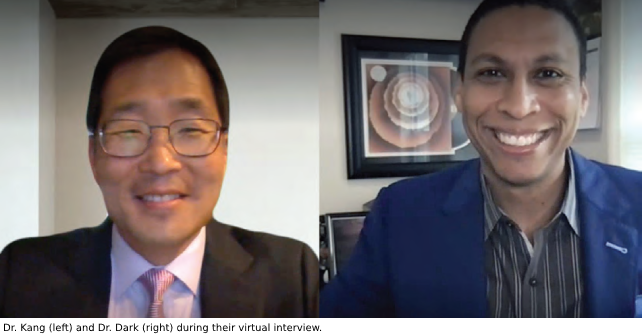
One of the things I also want to address is the increase in the number of residency programs, and there is no doubt when you look at the numbers, the rapid explosion of the number of programs being started. We need to have a conversation about some programs, existing programs, still expanding.
Explore This Issue
ACEP Now: Vol 42 – No 07 – July 2023If I’m a young person, early 20s, and I’m thinking of pursuing something that puts me in an emergency department, why would I pick a pathway that takes me four to eight years when I could be doing something fairly similar in a pathway that might be two to three years long?
Dr. Kang: I think part of it is do you want to be the leader? Do you want to, be the best educated, to be the best trained to be able to have those and take advantage of those opportunities, whether it’s working in different environments part-time, whether or not your career may transition somewhere else? The physician should still be the leader of the emergency care team and emergency medicine residencies provide that training.
You may be touching upon a scope of practice and where, hey, maybe I can find a different profession that would allow me to work in certain environments but not take as long and that we know are rapidly growing. In the end, do you want to be working for somebody or do you want to be leading the team? And I would argue that again, emergency physicians are the best educated, best trained, and best qualified to lead the teams in almost any variety of acute care settings.
Let’s talk a little bit about diversity within the workforce itself. So, you’re the first Asian American president that ACEP has had and in the fall, Dr. Aisha Terry is going to become the first black president for the American College of Emergency Physicians, but the leadership of the College and sort of the overall numbers within emergency medicine, in general, tend to not be reflective of the overall population, the diversity in this country. So what is ACEP’s commitment to diversity, equity, and inclusion, especially considering the recent backlash we’ve seen in places like Texas and Florida?
Dr. Kang: It comes to three things. One is what is our overall mission, both as emergency medicine physicians, but also as ACEP. And that is to be able to best take care of our patients. And so giving those voices to those who may be the minority, who may be overlooked. So when we talk about reproductive rights, when we talk about transgender rights, when we talk about other things, how can we better care for those patients?




No Responses to “Mid-Year Q&A with ACEP President Dr. Chris Kang”